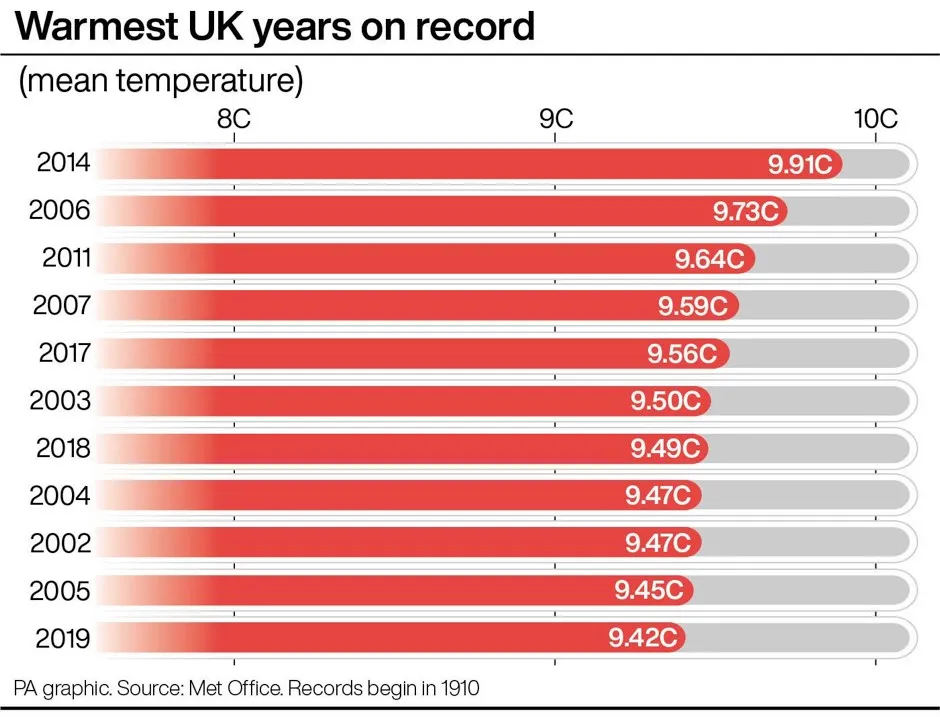Last month was the hottest January since scientists began keeping temperature records in 1880, US officials said.
The global average land and ocean surface temperature in January was 1.14°C above the average January temperatures for the 20th Century because of the changing climate, the National Oceanic and Atmospheric Administration said.
In parts of Russia, Scandinavia and eastern Canada, temperatures exceeded the average by 5°C.
Warmer temperatures mean melting snow and ice. The extent of Arctic sea ice was 5.3 per cent below the average from 1981-2010, and Antarctic sea ice was 9.8 per cent below average.
The hottest January after the second hottest year on record “is one of those indications that things are warming dramatically”, said University of Illinois climate scientist Don Wuebbles.
The news comes after the Met Office announced in January that the last decade was the second-hottest in the last 100 years. The decade was also the second-wettest, and saw the highest UK daily maximum temperature records set for February, July, October, November and provisionally for December.

Dr Mark McCarthy, head of the National Climate Information Centre, said at the time: “It is notable how many of these extreme records have been set in the most recent decade and how many more of them are reflecting high rather than low-temperature extremes: a consequence of our warming climate.”
He added: “We are expecting the warming trend to continue through the 21st Century and we would expect these sorts of records subsequently to be broken in the future.”
Reader Q&A: Do we really know what climate change will do to our planet?
Asked by: Jennifer Cowsill, via email
There is no doubt that greenhouse gas emissions caused by humans are changing our climate, resulting in a progressive rise in global average temperatures. The scientific consensus on this is comparable to the scientific consensus that smoking causes lung cancer.
Our climate is a hugely intricate system of interlinking processes, so forecasting exactly how this temperature increase will play out across the globe is a complex task. Scientists base their predictions on powerful computer models that combine our understanding of climatic processes with past climate data.
Many large-scale trends can now be calculated with a high degree of certainty: for instance, warmer temperatures will cause seawater to expand and glaciers to melt, resulting in higher sea levels and flooding. More localised predictions are often subject to greater uncertainty.
Read more: